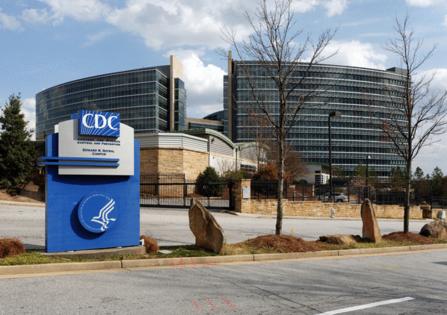'We are going to see people die of AIDS' because of CDC cuts, expert says
Published in News & Features
The Trump administration’s cuts to U.S. health agencies announced Tuesday will reduce HIV prevention services and hamper Georgia’s efforts to tackle stubbornly high rates of new infection, experts told The Atlanta Journal-Constitution.
“We are going to see people die of AIDS in the U.S. in 2025,” said Sara Ziegler, who was formerly an associate director at the Centers for Disease Control and Prevention and now leads public health consultancy Courage Forward Strategies. “That wasn’t happening anymore in the U.S., but it will again.”
Human immunodeficiency virus is the virus that, if untreated, might cause acquired immunodeficiency syndrome and death. Atlanta has one of the highest infection rates in the nation, with only Miami and Memphis, Tennessee, outranking Atlanta in terms of new HIV infections, the AJC has reported.
Workers at the Atlanta-based CDC began receiving termination notices Monday night and again Tuesday morning. The cuts to staff effectively disable entire branches of the CDC. Divisions that work to stop new hepatitis and HIV infections were hit hardest, according to active and retired CDC employees familiar with the cuts.
Dr. John Brooks, former chief medical officer to the CDC’s Division of HIV/AIDS Prevention, said the economic impact of the cuts to Atlanta and the state more broadly would be noticeable since several hundred people work in the HIV prevention division.
The cuts will be counterproductive, he added, because Tuesday’s firings remove an entire layer of researchers whose work involved understanding the value and effectiveness of existing programs — or in other words, whether taxpayers are getting the bang for their bucks.
“You have a large number of Georgia citizens who are now unemployed,” Brooks said. “Their work won’t be able to be replaced. We won’t know which programs are working or what will need to be changed. That means we will lose the ability to know if the remaining money within the budget is being well spent.”
Staff in five of 11 CDC HIV prevention divisions received reduction in force notifications and as of Tuesday morning were blocked from accessing the CDC’s two Atlanta campuses.
The job cuts took place in the following divisions:
—Behavioral and Clinical Surveillance: Runs many projects to study HIV’s impact in Georgia and around the U.S., seeks to determine how HIV impacts people living with the infection and investigates how well U.S. treatment efforts are working.
—HIV Prevention Capacity Development: Helps Georgia and other states build their HIV prevention programs.
—HIV Prevention Communications: Conducts all public awareness campaigns in the U.S., maintains webpages that communicate with the general public and public health officials around the country.
—HIV Research: Studies how to prevent HIV. This division helped develop guidance around drugs called pre-exposure prophylaxis — or PrEP — which are 99% effective at preventing HIV when taken by people who are HIV negative and at risk of infection. This branch studies where in the U.S. PrEP is needed and how access can be improved. It also develops new, accurate and accessible tests for HIV (like self-tests) and administers the CDC’s Take Me Home test-by-mail program.
—Quantitative Sciences: Makes models to see how different prevention activities are working and at what cost to taxpayers.
In addition to the staff cuts, Brooks said the Public Health Associate Program was also closed.
If that fellowship program is, in fact, cut, Georgia would lose critical HIV prevention workers. The Georgia Department of Public Health has one CDC–Public Health Associate Program staff member who works to reduce new HIV infections in Georgia, the department has previously said. Cobb, Gwinnett, Macon and DeKalb have Public Health Associate Program staff as well who work on prevention and surveillance activities.
The Department of Public Health did not immediately respond to a request for comment and has previously directed comment to the CDC.
Ziegler, the public health consultant, says cuts to the CDC’s prevention budget will be felt in Georgia.
“In northwest Georgia, we have high rates of opioid drug use,” she said. “It’s easier to transmit HIV in these settings. If people are pregnant, they can give birth to children who have HIV. That’s one of the many reasons why we need prevention efforts.”
HIV prevention drugs cost $30 a month without insurance or are free with insurance. The drugs are safe and effective. But people have to learn how to access them, and that key component of the CDC’s work has been axed, she said.
If everyone who needed PrEP drugs could access them, activists say new HIV infections in Atlanta would fall by over 90%, potentially saving Georgia taxpayers tens of millions of dollars, the AJC has reported.
In Georgia, 2,575 people were diagnosed with HIV in 2022, and 60,902 Georgians are living with HIV, according to the Department of Public Health. Nationwide, about 1.2 million Americans are living with HIV, and 31,800 acquired the virus in 2022, according to health policy researchers at KFF.
_____
©2025 The Atlanta Journal-Constitution. Visit at ajc.com. Distributed by Tribune Content Agency, LLC.







Comments